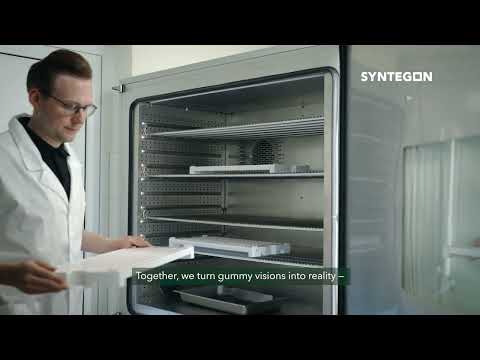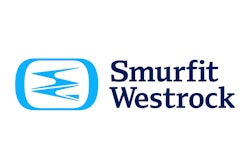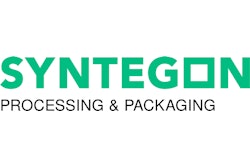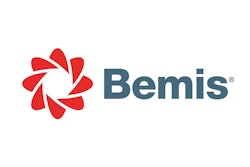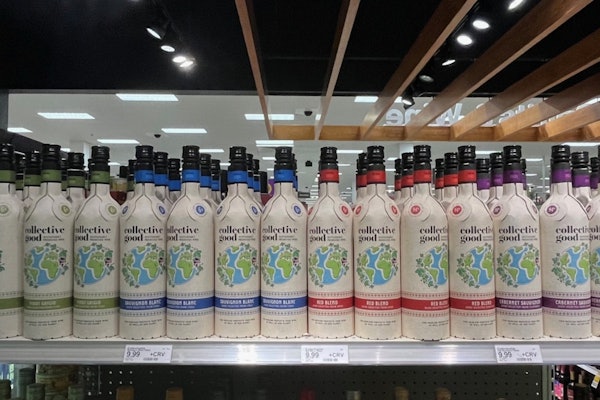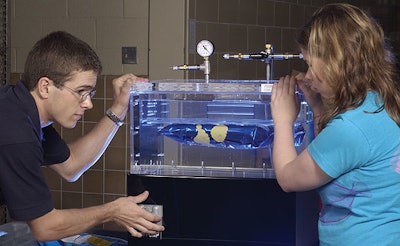
Needs drive change. Whether it’s fear of terrorism or making food more appealing, packaging technology is evolving rapidly, and Clemson is in the midst of that evolution,” says Ronald Thomas, Ph.D., professor and chair for the Department of Packaging Science at Clemson University.
To make sure its students are ready for the evolving professional packaging environment, students and faculty interact with representatives from packaging firms throughout the distribution chain, at the Clemson, SC, campus, at packager or supplier facilities, or at trade shows.
“If we’re going to train students to ‘hit the ground running’ when they get into the packaging business, then we need help from the industry,” says Thomas.
“We can put the curriculum together, but we need equipment, money, and most importantly, we need professionals to come here and demonstrate what’s going on in the field and what’s needed,” he says. “We have constant contact with the outside world by bringing in a flow of visitors, by conducting commercial testing for packaging companies, and through an advisory board of packaging experts that visit here twice a year. The more people we get to interact with students on campus, the better. That interaction creates a learning environment that works.”
To further strengthen its ties with the “real world,” Clemson last month officially opened its Center for Flexible Packaging (CEFPACK, see p. 17).
Impressive employer list
Clemson is one of the few four-year institutions to offer a Bachelor of Science degree in packaging science. An M.S. degree in packaging science and a Ph.D. in food technology are also available. The packaging science program maintains a student-teacher ratio of about 15:1 and graduates about 45 students per year. Greater than 95% of its graduates find placement in packaging positions.
Clemson alums are employed by an impressive list of packagers and suppliers. Packagers include Campbell Soup Company, ConAgra Foods, Frito-Lay, Gillette, GlaxoSmithKline, Hershey Foods, Nestlé USA, PepsiCo Beverages, Johnson & Johnson, Kraft Foods, McNeil Consumer Healthcare, and Tropicana. Among the prominent suppliers employing Clemson packaging science alumni are CCL Label, Georgia-Pacific, International Paper, MeadWestvaco, Milliken, Pechiney Plastic Packaging, Printpack, Robert Bosch, Sealed Air/Cryovac, and Sonoco.
Hershey Foods and Clemson
“The packaging science curriculum was definitely a good foundation for my current position,” says Russell Shepherd, senior packaging and graphics engineer at Hershey Foods, Hershey, PA. “Aside from solid theory on various materials and manufacturing processes, there was a strong emphasis on real-world situations. Group projects always involved realistic issues and time constraints. The strong focus on lab work and hands-on experience was also good preparation for the materials and machinery I see every day,” says the December ’93 graduate, whose emphasis was in food packaging.
Shepherd explains that Hershey Foods and Clemson work together. “Hershey Foods actively seeks out students from Clemson as interns, and our company has also donated test equipment to Clemson’s packaging lab. The corporate-academic relationship serves both parties well. Academic institutions can keep abreast of issues, which benefits their search for the proper curriculum. Internship programs provide valuable experience to students and serve to provide future career opportunities,” he says.”At the same time, the corporate world is able to tap into [research] and gain fresh insights, and a potential future workforce [member] who knows the business.”
Mutual benefits with Fuji Photo Film
Tyler Brewington is another ’93 grad with a food packaging emphasis. Today he’s a packaging engineer for Fuji Photo Film in Greenwood, SC. The facility makes 35-mm film, coated color photographic paper, offset printing plates for package and commercial printing, cameras, and X-ray films.
Looking back at his college days, Brewington says, “I heard about the program in high school in South Carolina. Later I enrolled in an initial packaging class at Clemson and liked it so much that I switched from premed-biological sciences to packaging science.”
Brewington says his Clemson experience helped him gain his first job out of college at a box company in Atlanta. He says his education “set me way apart from the others who had interviewed for that job.” He heard about the Fuji opening from engineers at the company. All seven packaging engineers working at the Fuji facility attended Clemson.
He credits his Clemson experience with “helping me tremendously at Fuji as far as a general understanding of packaging. Clemson’s packaging program gives you a lot of hands-on experience, especially going on tours and looking at facilities and working with companies. We saw many different machinery companies, we visited paper-making facilities, plastics companies, food companies, and label businesses,” he recalls. “We would go on a three-day trip across the state in a bus for a particular class and tour a lot of places. You would always go on at least two tours every class, every semester.”
Now that he’s a professional in the field, Brewington has worked with Clemson students as part of a special six-month co-op program required for graduation. “We’ve hired as many as four co-op students here at one time. They work as packaging engineers. We pay them and they stay at an apartment-like complex we refer to as the ‘Fuji Inn.’ We give them a series of projects they have to complete before they leave. They help with our regular projects, such as drop tests, permeability, shock and vibration tests, and other ship tests. They help design and implement a package from the beginning to end. They work with suppliers, and are involved in testing, materials specifying and ordering...they’ve been a tremendous help.”
Masterfoods USA and Clemson
Masterfoods USA is another manufacturer that has established a mutually beneficial relationship with Clemson. Describing the relationship is John Helferich, R&D vice president for Masterfoods USA, the Hackettstown, NJ-based business of Mars Inc.
“We work with Clemson professors to help guide our packaging technology development,” relates Helferich, a member of Clemson’s advisory board. “We started with Clemson in 2001 because we were interested in upgrading our whole packaging effort by adding fundamentals to it. We’ve had professors come in to do some of our training, consulting, and advising. We also work with vendors and with Michigan State University.
“We decided to work with Clemson as an alternative because sometimes graduates don’t want to come from the Midwest to New Jersey. We wanted to recruit at both schools.”
From basic research and recruiting, Helferich expects the Clemson-Masterfoods USA relationship to deepen, thanks to the new CEFPACK center. “What if you want to test a new material that a vendor hasn’t tried before?” he asks. With Clemson, Masterfoods USA “is reaching back past the vendor into a research environment. You can look into what they’ve done with a material, and you can see if you like that for your application. Then you can start to see if it’s going to work. Then you work with a converter or film company to make that a reality. The goal is to make it into a commercial package.”
Without revealing specifics, Helferich says the company will have Clemson conduct research on flexible and rigid packaging materials. But he says, “Right now, we’re looking at some new flexible systems at their new Center for Flexible Packaging, for both retort and non-retort” structures.
“We brought single-serve pet foods [in pouches] to the European market in the ’90s, and we saw them as a potential can replacement,” Helferich continues. “There are some definite product benefits in the pouch over the can in terms of product performance. They’re thinner, so you’re cooking the product less, and consequently you can achieve sterility with less heat. That ends up as better product quality.
“Also, there’s the importance of the single-serve convenience issue. In a can, with the portion sizes we’re talking about, the costs start to go up. So for smaller portion sizes, it looks like it’s competitive economically. We also believe [the pouch] is going to be the format of the future for the consumer and is easier to open.”
The challenges, he says, are the need for new filling equipment, and the complexity and costs of the films. “I think we’re early in the flexible retort technology curve, so there’s a lot of optimization to do with the current applications. With Clemson, we’ll be able to understand the fundamentals and the interaction between the materials and the retorting process.”
Helferich states that Clemson’s new material qualifications for vendors will be important. “Let’s say you’re going to run a trial on a production-size retort pouch. You need lots of packages, with a significant amount of product and material. Clemson is a place where our vendors can try out their options first, pick one that works, then bring it to us. [That way] we can speed up the introduction process into the plant and also reduce the costs of the introduction. That’s a huge savings.”
Summarizing Masterfoods USA’s work with Clemson, he says, “We began with recruiting, and now we have two or three Clemson grads. I’m on the advisory board. Now, we’ll be doing more research with the flexible packaging center. We’ve been real happy with them.”
He adds, “I think the big benefit for Clemson is that it is really good at taking and implementing feedback. It really listens to its advisory board. It has a unified vision of where the department is going. It really wants to be linked [with the greater packaging community]. It gets a lot out of us because it looks for advice on courses and curriculum and support, and it wants to know what we want to see from students. In turn, we get better-trained students and they help us,” Helferich concludes. In short, Clemson delivers a tiger of a packaging science program.

